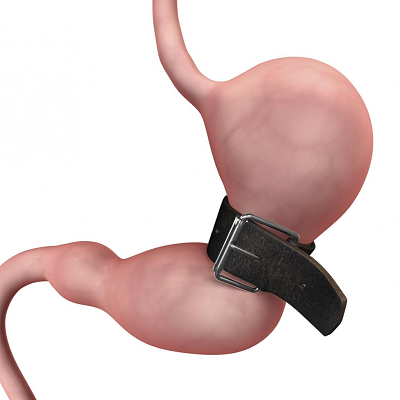
Whether you want to lose weight or reach a healthy weight, there are several effective cosmetic procedures. A candidate with severe weight issues may have bariatric surgery in Islamabad as a last resort.
Bariatric surgery helps severely obese people lose weight by shrinking their stomachs or skipping small parts of their intestines. It is also designated as “weight decrease surgery.” Some call it a metabolic or weight loss operation. But does it have any effects on mental health? Read on to find out more!
What does the word “bariatric surgery” mean?
The surgery targets highly obese patients. This category includes several therapies that shrink stomach volume by removing part of it or preventing food from going through. If necessary, the first part of the stomach may be omitted. This reduces hunger and ensures early meal satisfaction, resulting in weight loss and improved or remission of linked disorders.
Bariatric surgery is a mechanical procedure that can treat extreme obesity and cause long-term weight loss, especially if monitored. Several types of bariatric surgery exist, each with its benefits and methods. Gastric bypass surgery is one of four primary bariatric surgeries.
Long-term results and success rates:
Bariatric surgery typically results in 50–70% weight loss in the first year. The long-term consequences of bariatric surgery depend on patient compliance with post-diet and lifestyle changes, frequent sports, and follow-up care. Studies have shown that weight loss and health gains might last ten years or more following surgery. However, some patients may gain weight or acquire comorbidities, including malnutrition or gastrointestinal difficulties, during treatment.
Top-tier benefits:
Bariatric surgery has many benefits. The biggest and most common benefits are:
- Significant and long-lasting weight loss.
- Better living standards.
- Remission or improvement in type 2 diabetes.
- High blood pressure lowering.
- Reduced sleep apnea symptoms.
- Subsided Joint pain.
- Cancers are less likely to occur.
- Mental health improves.
Bariatric Surgery Qualifications:
Bariatric surgery eligibility depends on BMI, health, and weight loss attempts. You are a good candidate if:
- Having a BMI of 40 is required.
- Previous weight loss attempts.
- You have fat-related health difficulties.
- It would help if you were 20+.
- You are healthy to participate.
- Pregnant and breastfeeding women cannot receive support.
Bariatric surgery eligibility depends on the operation and patient. Remember this crucial point. A bariatric surgeon can help determine if a patient is a good surgical candidate.
Evaluation Before Operation and Preparation:
Pre-operative evaluation and preparation are critical for bariatric surgery success and safety. The pre-operative inspection and preparation process typically includes these steps:
- Discuss your medical history with your doctor.
- Initial medical testing may involve blood tests and other examinations.
- Try to avoid alcohol and smoke.
- Avoid blood-thinning medications.
- Get enough water and other nutrients.
Operation steps:
The following steps are involved in intestinal bypass surgery, one of the most common abdominal surgeries:
- General anesthesia is used before surgery. The patient is going to be sedated and pain-free during therapy.
- A series of tiny abdominal incisions will allow the plastic surgeon to reach the intestines and stomach in the second half. Sometimes a larger incision is needed.
- In the third phase, the bariatric surgeon uses a surgical hammer to produce a tiny pouch in the upper stomach. Thus, food intake and hunger hormones decrease.
- The surgeon will remove the small intestine from the stomach in the fourth segment.
- In the fifth part, the surgeon will connect a tiny digestive system to the stomach pouch. The rest of the intestines and upper intestinal tract are blocked, reducing calorie and nutrient absorption.
- The surgeon will join the remaining small intestine into the new connecting site before moving on to the next phase.
- In the seventh step, surgeons apply disinfectant dressings and closure incisions with sutures or staples.
Post-Op Care and Recovery:
Rehabilitation and treatment following surgery are crucial to ensure bariatric surgery success. Post-operative care and recovery often involves the following steps:
- Most patients stay in the hospital for several days after surgery to recover.
- The surgeon may prescribe medications to relieve pain.
- It would help if you watched for complications, including bleeding and infection.
- You are eating healthy according to your doctor’s advice.
- Patients should start doing nothing immediately following surgery to speed healing and limit blood clot risk. Such exercises included walking.
- The plastic surgeon will schedule monthly follow-up meetings to assess your progress and address concerns.
- If you have a significant reaction, notify your surgeon immediately.
Cost of bariatric Surgery in Islamabad:
The cost of Bariatric surgery in Islamabad ranges from PKR 400,000 to PKR 800,000. However, the cost varies by patient and situation. Remember that this delicate treatment cannot be done cheaply. The price of the professional surgeon can also affect the therapy’s expense.
- Clinic location and reputation.
- A particular bariatric surgery.
- Unincluded fees.
Arrange a free consultation now!
Are you seeking an expert Bariatric surgeon at an Islamabad clinic? Royal Cosmetic Surgery PK will help you attain your goals. Call us or complete the following form to schedule a consultation!






